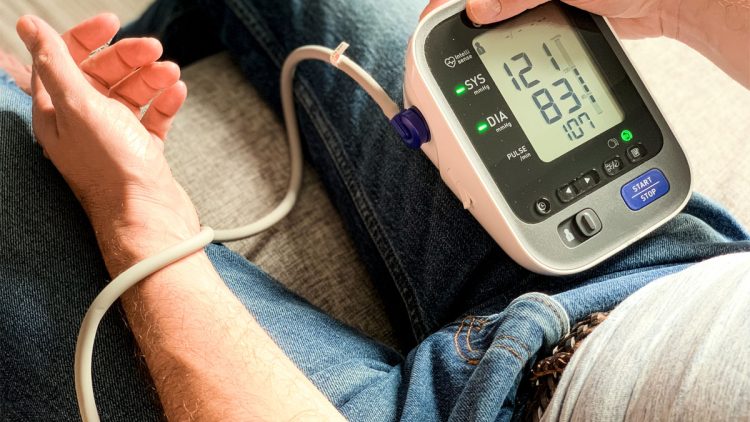High Blood Pressure
What is blood pressure? Blood pressure is the pressure of blood “pressing” towards the walls of your arteries. They transport blood from your heart to other areas of your body. Your blood pressure typically fluctuates during the day.
What is the meaning of blood pressure numbers?
Blood pressure is measured via two numbers:
The first one, classified as systolic blood pressure, is the measurement of the pressure in the arteries when a heart beats.
The second one, classified as diastolic blood pressure, is the measurement of the pressure in the arteries when a heart rests between beats.
If the measurement shows 120 systolic and 80 diastolic, a professional is going to say, “120 over 80,” or jot down, “120/80 mmHg.”
What are typical blood pressure numbers?
Normal blood pressure levels are less than 120/80 mmHg.
Regarding your age, you can take steps every day to keep your blood pressure in a healthy range.
What is hypertension?
Hypertension is blood pressure that is higher than it should be. Your blood pressure fluctuates during the day on the basis of your level of activity. Having blood pressure measures continually above normal might result in a determination of hypertension.
The higher your blood pressure measures, the more in danger you have for other health issues, like heart disease, stroke, and cardiac arrest.
Your healthcare professionals can determine higher blood pressures and make treatment decisions by examining your systolic and diastolic blood pressure measures and comparing them to measures found in certain directives.
The directives used to determine higher blood pressures may differ by healthcare workers:
- Many healthcare workers determine patients with high blood pressure when it is continually 140/90 mmHg or higher. This ceiling is based on directives reported in 2003.
- Different healthcare workers diagnose patients with high blood pressure when their blood pressure is continually 130/80 mm Hg or higher. This ceiling is based on directives reported in 2017.
Blood pressure numbers
When you are diagnosed with high blood pressure, speak to your healthcare workers concerning your blood pressure numbers and how these numbers impact your treatment plan.
What are the signs and indications of high blood pressure?
High blood pressure typically has no advanced indications or symptoms, and a lot of individuals do not know they have it. Taking a measurement of your blood pressure is the primary means to determine if you have high blood pressure or not.
What causes high blood pressure?
High blood pressure typically progresses over time. It can happen due to unhealthy lifestyle decisions, like not getting enough regular physical activity. Specific health conditions, like diabetes and being overweight, can also increase the risk of developing it. High blood pressure can also occur throughout pregnancy.
You can oversee your blood pressure to lower your risk for serious health issues that may impact your heart, kidneys, brain, and eyes.
What issues does high blood pressure cause?
The welcoming news is that, in a lot of cases, you can oversee your blood pressure for lowering your risk for serious health issues.
Vista Winds Is An Upscale Retirement Community Located In Peoria, Arizona
If you are doing research about retirement communities in Peoria, Arizona, Vista Winds Retirement Home should definitely be on your list. Vista Winds offers retirement living at its finest. We have a rich calendar of activities, meals prepared by a Chef and caregivers on staff 24 hours a day for your health and safety. We offer award winning independent living, assisted living and memory care services. Come tour our community to see how we are a step above the rest and how easy it is to Make Yourself at Home! Vista Winds is surrounded by amazing views and our resort style property will be sure to impress!

